Continuous Positive Airway Pressure (CPAP)
The most common and effective nonsurgical treatment for sleep apnea is Continuous Positive Airway Pressure (CPAP), which is applied through a nasal or facial mask while you sleep. Muscular tone in the neck decreases when you begin to sleep, and soft tissue tends to collapse into the upper airway. Partial airway collapse produces snoring, but more significant collapse can cause sleep apnea.
The CPAP device does not breathe for you. Instead, it creates a flow of air pressure when you inhale that is strong enough to keep your airway passages open. Once your ENT (ear, nose, and throat) specialist, or otolaryngologist, or a sleep specialist determines that CPAP is the right treatment, you will need to use it every night.
How Do I Obtain a CPAP Device?
After review of your sleep study, your ENT or sleep specialist may often prescribe a CPAP device for you, especially if you have severe sleep apnea. Usually, a home supply company will provide you with CPAP device that will adjust the pressure automatically (auto-PAP) during the night to keep your airway open. Otherwise you may be scheduled for a second sleep study during which you will be fitted for a mask and CPAP device at a set pressure.
What Are the Advantages of CPAP?
CPAP is the most effective means of treating snoring and sleep apnea, if you wear it regularly. It keeps airway passages open, which prevents pauses in breathing and helps you to get better sleep. This, in turn, can reduce daytime sleepiness, and possibly other sleep apnea-related health problems such as high blood pressure, heart disease, diabetes, and stroke.
What Are the Disadvantages of CPAP?
The CPAP device needs to be used every night for the entire duration of sleep. Some patients complain of mask discomfort, nasal congestion, and nose and throat dryness when using CPAP. Others find the device to be too constrictive and cumbersome, particularly when traveling. Unfortunately, these complaints sometimes lead to inconsistent use, or discontinuation of treatment. Proper mask fitting, use of a humidifier, and treatment of nasal obstruction by your ENT specialist can help resolve these issues. Only a minority of patients are able to wear if effectively.
Are there Alternative Treatments for Sleep Apnea?
Lifestyle changes, including weight loss and exercise, can help improve sleep apnea and its related health problems. Sleep positioning and oral appliances have also been found to be effective in appropriate cases. If these non-invasive treatments fail, or surgery is an option, your ENT specialist will be able to advise you on about reconstructive surgical options.
CPAP VIDEO
Dr. Andrew Lee provides a brief overview of Continuous Positive Airway Pressure (CPAP).
Related Conditions
June 2021: Phillips Recall of PAP Devices
The information on ENThealth.org is provided solely for educational purposes and does not represent medical advice, nor is it a substitute for seeking professional medical care.
Copyright 2025. American Academy of Otolaryngology–Head and Neck Surgery Foundation

